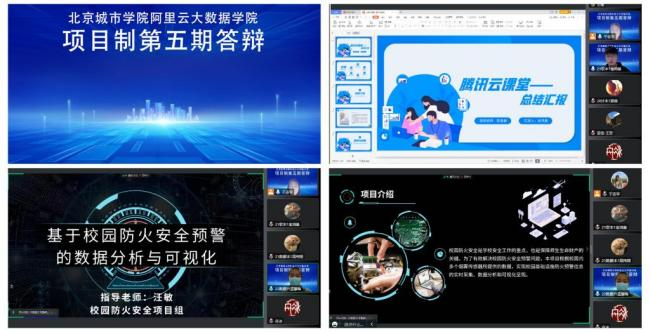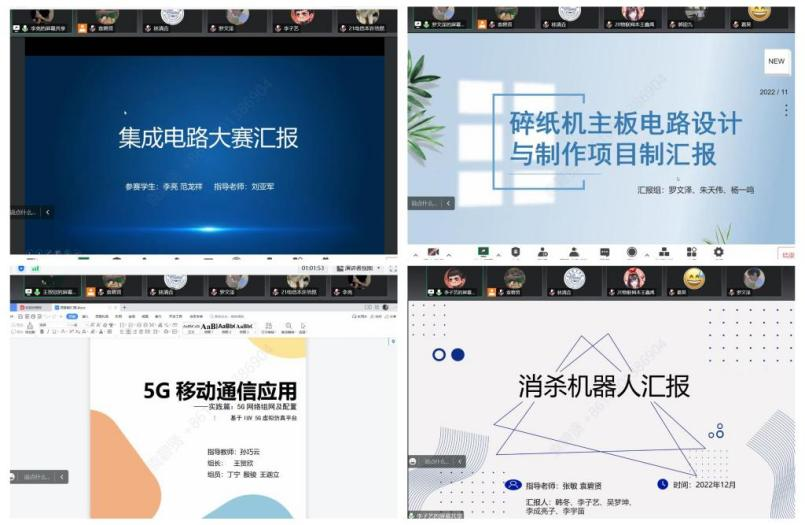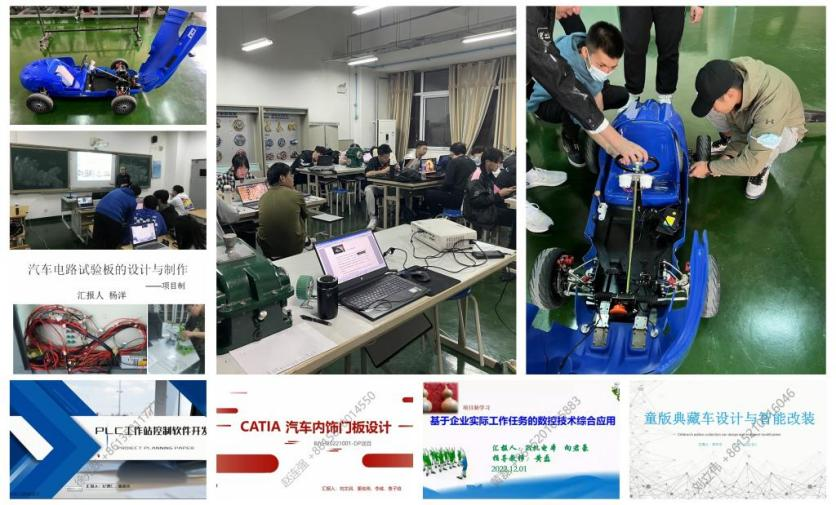Recently, majors from School of Information Technology have successively carried out project-based teaching defense reports. Students of each project team demonstrated their achievements through PPT, video, 3D pictures and other methods. This semester, the School expanded project-based teaching to all majors, with nearly 600 students participating in. It gives full play to the advantages of combining professional tutors and corporate mentors to carry out project guidance from multiple perspectives and levels.

The projects developed by School of Information Technology are built on the actual projects of enterprises, which include a 3D printing intelligent control system based on deep learning, Tencent Cloud Classroom (enterprise-level J2EE project), and public opinion information management system-front-end development. It combined with the standardized project management process of enterprises, stimulating more potential students to accumulate project experience quickly.

The project-based activities of School of Information Technology cover many directions such as intelligent electronic products, wireless communication, integrated circuits, embedded and etc., which effectively broaden students' horizons and improve their self-learning ability.

The project activities are based on practical projects such as the Shunyi District Cyberspace Affairs Office, the Computing Center of the Institute of High Energy Physics, and the Python Blue Bridge Cup Training Camp, which enable students get full exercise.

Intelligent Vehicle Department provides projects such as CATIA Automotive Interior Door Panel Design, Appearance Design and Intelligent Modification of W Model 196R Collection Car, have built a hands-on platform for students on the basis of combining with corporate practice.
In the past two years of the project-based training, students’ recognition continues to increase, with the participants proportion increasing to 60%. It has become an important carrier for student growth and internship practice, and will continue to play an important role as a comprehensive training platform for normalized industrial-type talent training.
